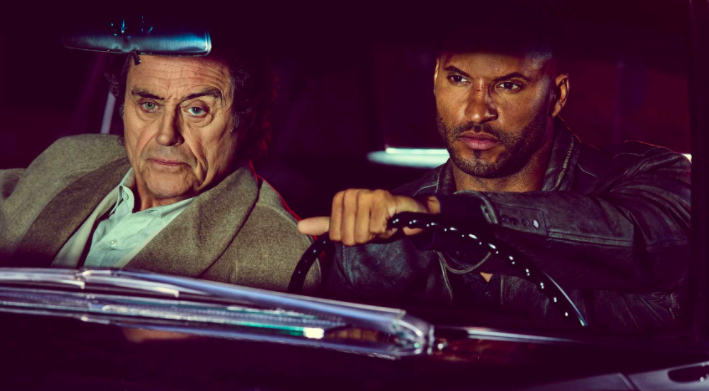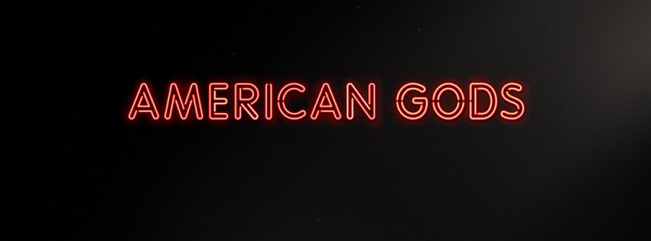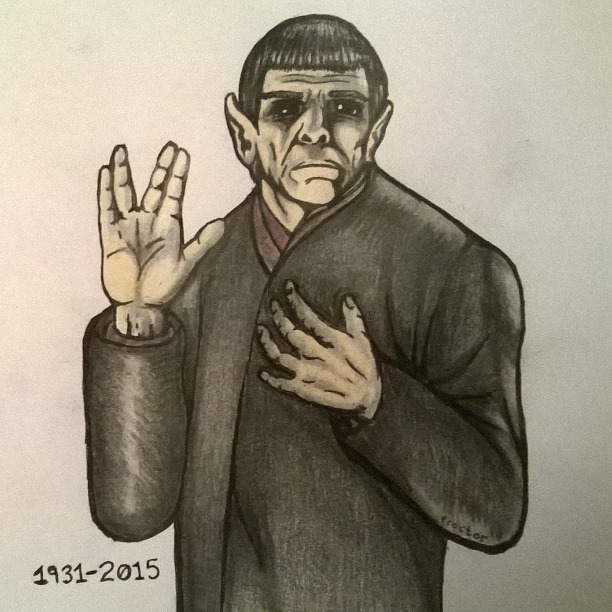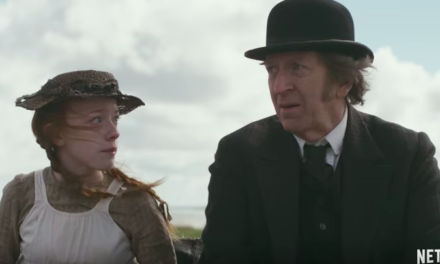Before we dive into a satisfying freefall regarding the translation of book to screen for a fiercely coveted novel, I’m going to be an obscenely cruel host. We’re not going to jump straight into actors, depths, and representations. Instead, we’re going to stay briefly mundane and necessary for a important consideration before this review of American Gods Season 1 Episode 1.
In an intensely interesting interview attached to the end of the Audible narration of American Gods, Neil Gaiman discusses the process for the novel. He mentions that the writing the process for the novel took five years to write and many of the inspirations arose from his long drive through America. American Gods was first released in 2001.
So before we start any discourse about American Gods, particularly with analytical tendencies, we should remember that the book to screen translation is going to need to be changed to be relevant. The book was released 16 years ago.
In 2001, the internet was a rare commodity (not a reliable, readily-available resource), guns and violence did not function as currency, and cellphones were not common.

For an example, in the book, Bilquis answers the john’s American flag-plated Nokia phone. Two things: On the screen, Paunch meets Bilquis via a dating app (and she does not answer a call at the end). In the book, Shadow uses a confirmation number from his wife, the travel agent, for his flight and can with ease, rearrange the flight for the death. On screen, we are shown why today that would never functionally occur (“here are your extra charges, you don’t have a death certificate, good luck and go f*ck yourself,” essentially).
These are examples of necessary updates from those 16 years difference. We should be cognizant that these changes have to occur to maintain the themes of the book.
Also relevantly, these would also be an example of nit-picking, and while I’m capable of doing it (Low Key Lyesmith has orange-blond hair in the novels but is a brunette on the show, and so on, and so on), you and I both know we have better things to do with our lives.
With these considerations in mind, I can say with certainty that the show is absolutely the level of quality I personally expected. Other than minor irritations (probably not even rational ones, to be fair), this show mirrors the level of quality we could best hope for in screen representation. Further, the decision to make it a show and not a unjustly condensed version of itself (a movie, or a fading god) was deserved literary justice. Hour long episodes? Hnngg.
To start, I was not expecting an opening scene of Mr. Ibis’ Somewhere in America tales, as the novel itself does not start there, but such practice conveys a prime example of excellent book to screen translation. The scene provided the true foundational basis for American Gods: America is fertilized by a conglomerate of transported, risen, and fallen gods. Following Viking ancients in their travel to the New Land is titillating and includes all gore necessary to be truly Viking.
But let’s also consider our main character. Ricky Whittle’s Shadow is stunning: concretely how I pictured Shadow not only physically, but in his manner of interactions, as well. When Shadow is told that Laura is dead, Ricky portrays every emotion Shadow goes through: disbelief, confusion, anger and heartbreak, but without tears. What is perhaps a bit different in the translation is that book Shadow, while not timid, is perhaps not quite as outspoken as Shadow appears in the show. This is likely not a betrayal of character, but a manifestation of how a narrated book has to adapt to fully portray the characters without a narrator.
Ian McShane’s Wednesday is another example of this. He’s got a bit more of a “punch” than book Wednesday, but not because he’s inaccurately portraying Wednesday, but because we lack the narrator to describe him externally. But even down to the appearance of a having glass eye, Ian encompassingly masters Wednesday’s underhanded sass with barrel-aged perfection.
In addition, in American Gods Season 1 Episode 1, we also have Shadow having multiple “visionesque” dreams: the Buffalo, the Bone Orchard, and the end “death” scene with the Children. While Shadow certainly has similar dreams scattered throughout the book, these dreams are equally aesthetically vivid and likely to serve as similar foreshadowing. Vivacious colors, darkness and contrasts emphasize that we really don’t have any idea about the depths of what Shadow is about to endure.

One noteworthy difference to really drink in in this episode is Audrey’s role in the show. In book, she is equally sedated but only mildly interested in jerking Shadow around. Here, we have an Audrey so appropriately shaken and devastated that she leaps from easily mocking her deceased husband and best friend to attempting to sexualize Shadow for retaliation. The scene in the book was always fitting, but this update to the show seemed even more apt given the level of grief, given a dead, cheating couple.
Another noteworthy update is the Technical Boy’s appearance via a high-tech mask in a field versus Shadow being jumped and thrown into a limo walking home from the graveyard. This accentuates the degree of Technical Boy’s capabilities while modernizing and updating a scene and providing evidence of his unpredictability.
But with equal excitement, we shouldn’t forget the attention to detail this initial episode has already garnished. The Crocodile Bar, in particular, is just as described in the book, but taken to an exponential degree: a bar turned into a crocodile mouth with teeth-lights in the mouth and the dim neon lighting of a deep South kind of atmosphere. The song “Iko Iko” is playing in the bar both in the book and in the show.
Foreshadowing quotes that don’t exist in the book realm but that are in-character gold. The floor getting waxed while Shadow sleeps at the airport.
Low Key lining up screws.
These all at first appear to be minutia, but add to the gravity and sincerity of the show.
But you said there were a few things you found irritating, Catella?
Right, but also remember that I’m not sure if they are actually irritating. Mostly, just a few minor notes I had.
First, I find the opening theme song a bit odd. Given, this entire book and show are both odd, but I’m not sure there’s an alignment in their oddness. It may still grow on me. Some of the music in one or two of the scenes has a similarly “off” feel, but not distractingly so.
Second, Mad Sweeney’s accent seems to wax and wane and it made me grump.
But really, that’s it.
In essence, we are getting what we expected. There are to-be-expected shifts in dialog, in scenes and in locations. 16 years later, updates are needed for relevancy. But mostly, and in a variety of ways, expectations are being exceeded, particularly since Neil himself is an active executive producer. Thank god(s).





